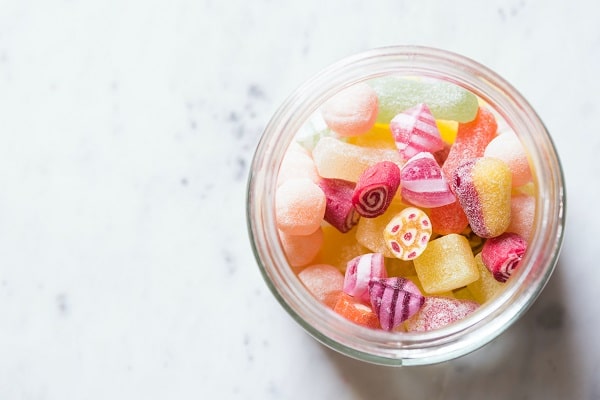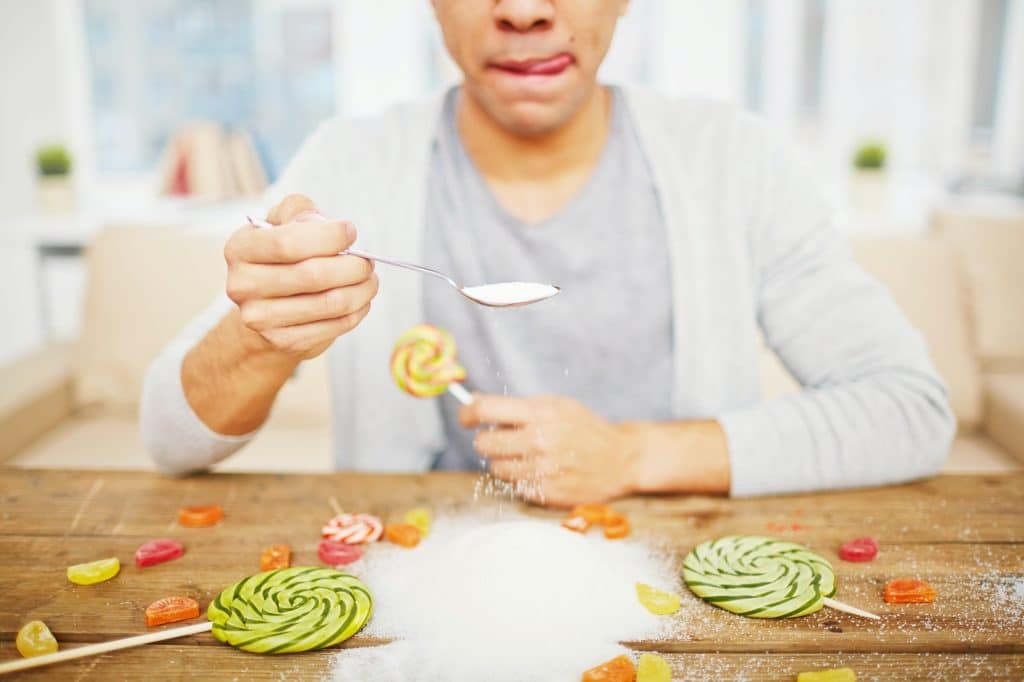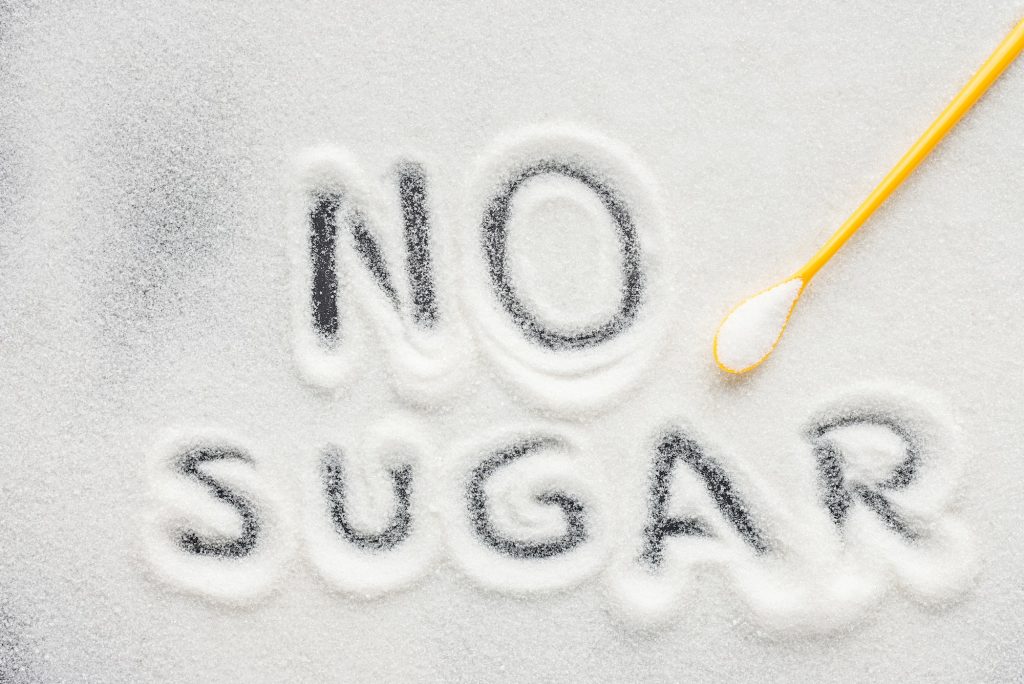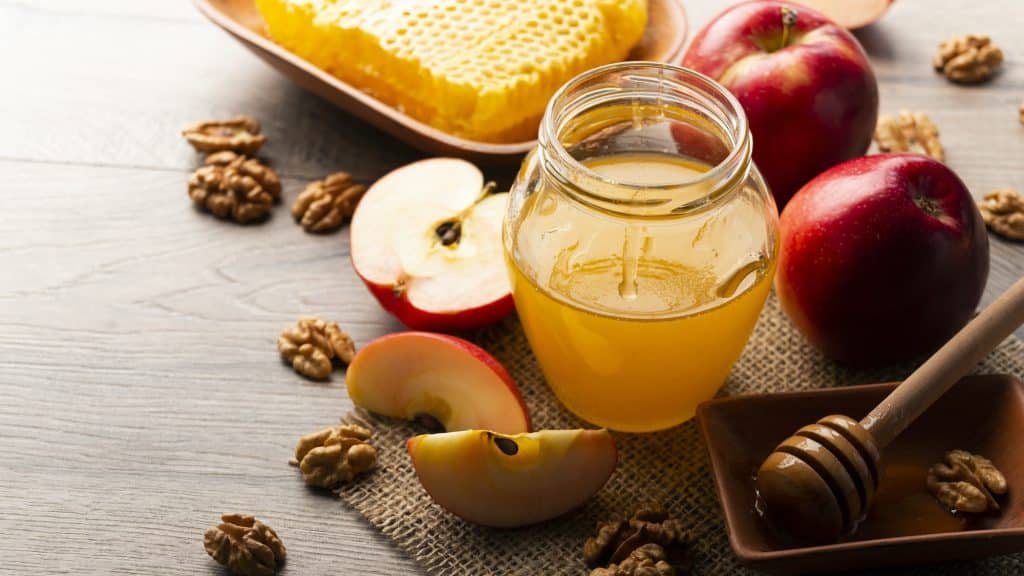Sugar: you love it, you crave it, and yet it’s one of the biggest threats to your health. A seemingly innocent ingredient, it can lead you into a dangerous cycle of addiction. This post will provide an enlightening journey into the world of sugar, shedding light on its effects, hidden presences, and the science behind the addiction. It will guide you on your path to a healthier, sugar-controlled lifestyle and help you break free from the sweet trap through the process of a sugar detox.
The Impact Of Sugar On Your Health And Well-being

Sugar, in its many forms, is a carbohydrate that your body converts into glucose. You encounter it in its natural state in fruits and milk and in its added form in a large variety of processed foods. Sugar’s sweetness can make food more enjoyable, but overconsumption can have detrimental effects on our health.
Your body is ill-equipped to handle a high intake of added sugars. Consuming excess sugar leads to a spike in insulin, triggering your body to store more fat. In the long term, this cycle can contribute to weight gain, obesity, and even diseases such as type 2 diabetes and heart disease.
Recognizing Hidden Sugars in Your Diet

Sugar is sneaky. Food and beverage manufacturers often add sugar to their products but disguise them with different names on ingredient lists. Sucrose, high-fructose corn syrup, and fruit juice concentrate are just a few of these aliases. By learning these names, you can make more informed decisions about what you eat and drink.
What’s more alarming is the amount of sugar found in everyday items. Sugary soft drinks and candies are obvious culprits, but many “healthy” foods, such as yogurt, granola, and fruit juice, can also be packed with added sugars. These hidden sugars can easily lead you to consume far more sugar than you realize.
The Science Behind Sugar Addiction

Like addictive drugs, sugar triggers a release of dopamine, the feel-good neurotransmitter, in your brain. This dopamine rush can make you crave more sugar, leading you into a vicious cycle of sugar consumption. The brain’s reward system is powerful, and when fueled by sugar, it can lead you down a path of excessive intake and addiction.
However, not all sugars are created equal. For instance, the natural sugars in fruit don’t provide the same dopamine rush as the added sugars in a candy bar. The difference lies in the rate of absorption: simple sugars are absorbed quickly, leading to a sudden spike and crash in blood sugar levels and, subsequently, your mood. This crash can trigger further cravings, perpetuating the cycle of sugar addiction.
Symptoms Of Sugar Overconsumption And Withdrawal

Consuming too much sugar over time can lead to noticeable symptoms. These may include consistent cravings for sweet foods, energy crashes, difficulty losing weight, and skin issues like acne and premature aging. Moreover, consistent overconsumption of sugar could lead to chronic conditions like obesity, type 2 diabetes, and heart disease.
Unfortunately, when you start to cut sugar from your diet, your body may go into withdrawal. Like other addictive substances, the sudden lack of sugar can lead to symptoms such as headaches, mood swings, anxiety, fatigue, and intense cravings. These symptoms can be challenging to manage, but they typically subside after a few days to a week as your body adjusts to a lower sugar intake.
Starting Your Sugar Detox Journey

Starting a sugar detox isn’t about immediately eliminating all sugar from your diet; rather, it’s about gradually reducing your intake to lessen the shock to your system. It’s essential to read food labels carefully and be aware of the different names that sugar hides behind. Reducing your intake of processed foods and increasing your intake of whole, unprocessed foods can also significantly lower your sugar consumption.
The idea of clean eating can play a vital role in your sugar detox journey. Clean eating involves choosing foods that are minimally processed, close to their natural state, and rich in nutrients. By adopting a clean eating lifestyle, you’ll be able to not only reduce your sugar intake but also improve your overall diet quality.
Overcoming Challenges In Your Sugar Detox Journey

The road to a healthier lifestyle isn’t without its obstacles. During the initial stages of your sugar detox, you may face difficulties such as intense cravings, withdrawal symptoms, and social pressures. However, these challenges can be overcome with determination, patience, and the right strategies.
When it comes to cravings, it’s important to identify your triggers and find healthy ways to cope. It could be as simple as going for a walk, drinking a glass of water, or eating a piece of fruit. For social situations and dining out, planning ahead and choosing restaurants with healthier options can help you stick to your sugar detox.
Healthier Alternatives To Sugar

Completely eliminating sweetness from your life isn’t realistic or necessary. There are many natural alternatives to refined sugar that you can incorporate into your diet. Natural sweeteners like raw honey, pure maple syrup, and stevia can offer the sweetness you crave while providing some nutritional benefits.
However, it’s crucial to remember that these natural sweeteners should still be used in moderation as they contain calories and can affect your blood sugar levels. Furthermore, incorporating more fruits into your diet can also help satisfy your sweet tooth. Fruits contain natural sugars and are packed with essential nutrients, fiber, and antioxidants, making them a much healthier choice.
The Benefits Of A Life Free From Excessive Sugar

Living a life free from excessive sugar can yield numerous health benefits. Physically, you might experience weight loss and increased energy levels. Over time, your cravings for sugar will decrease, and you’ll begin to appreciate the natural sweetness in foods. Furthermore, by reducing your sugar intake, you’ll also lower your risk of developing various health conditions such as obesity, type 2 diabetes, and heart disease.
Psychologically, less sugar can lead to more stable mood patterns and improved mental clarity. Many people report better sleep patterns and an overall improvement in their quality of life. Not only do these benefits make you feel better, but they also provide additional motivation to maintain your new, healthier lifestyle.
Sustaining A Life Free From Excessive Sugar

Maintaining a low-sugar lifestyle requires ongoing effort and mindfulness. It involves making conscious choices about what to eat and drink, reading food labels diligently, and continuing to educate yourself about nutrition. You might find it helpful to plan your meals ahead of time, and meal prep can be a great way to ensure you’re eating balanced, low-sugar meals throughout the week.
Regular exercise also plays a vital role in maintaining a healthy lifestyle. Not only does it help regulate your mood and curb cravings, but it can also help manage your weight and improve your overall health. Remember, the goal is not to achieve a completely sugar-free life but to develop a healthy and sustainable relationship with food.
Start Your Sugar Detox Today!
Sugar, despite its allure, can lead to a multitude of health issues when consumed excessively. However, with knowledge, determination, and the right strategies, you can break free from the sweet trap. This journey might be challenging, but the benefits that come with reducing your sugar intake—increased energy, improved health, and a more balanced life—make it well worth the effort. Remember, every small step towards a life free from excessive sugar is a victory. Start your sugar detox today, and embark on a healthier, happier life!


